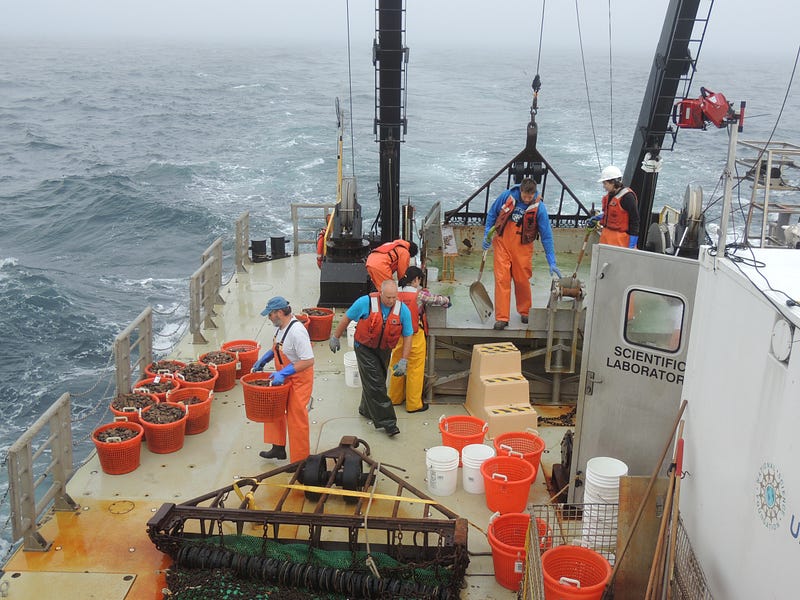
# Exploring the Impacts of Ocean Acidification on Coral Reef Ecosystems and Marine Biodiversity
Coral reefs are vibrant and diverse ecosystems that support a wide array of marine life. However, these delicate habitats face numerous threats, with one of the most significant being ocean acidification. In this article, we will delve into the effects of ocean acidification on coral reef ecosystems and marine biodiversity, shedding light on this critical issue.
## Understanding Ocean Acidification
1. **Carbon Dioxide Absorption**: Excess carbon dioxide (CO2) emissions from human activities are absorbed by oceans, leading to increased levels of dissolved CO2 in seawater.
2. **Chemical Reaction**: When CO2 dissolves in seawater, it reacts with water molecules to form carbonic acid. This process lowers the pH level of seawater and increases its acidity.
3. **Calcifying Organisms at Risk**: The increased acidity makes it challenging for calcifying organisms like corals, shellfish, and some planktonic species to build their shells or skeletons made primarily of calcium carbonate (CaCO3).
## Impact on Coral Reefs
Ocean acidification poses severe consequences for coral reef ecosystems:
1. **Coral Bleaching**: Increased acidity weakens corals’ ability to maintain their symbiotic relationship with algae called zooxanthellae. As a result, corals expel these algae, leading to bleaching — a phenomenon where they lose color and become more vulnerable to stressors such as rising sea temperatures.
2. **Reduced Growth Rates**: Acidified waters hinder coral growth rates by limiting their capacity to deposit calcium carbonate structures necessary for building reefs over time.
3. **Weakened Structural Integrity**: Weaker coral skeletons due to reduced calcification make them susceptible to damage from storms or physical disturbances like boating or fishing activities.
4. **Loss of Habitat & Biodiversity**: Declining coral reefs disrupt the intricate balance of marine ecosystems, leading to habitat loss for numerous species that depend on them directly or indirectly. This can result in a cascading effect throughout the food chain and negatively impact overall biodiversity.
## Effects Beyond Coral Reefs
Ocean acidification extends its reach beyond coral reef systems:
1. **Shellfish Vulnerability**: Acidic waters make it difficult for shell-forming organisms like oysters, clams, and mussels to develop and maintain their protective shells. This threatens their survival and has wider implications for aquaculture industries and coastal communities dependent on these resources.
2. **Disruption of Food Webs**: Acidification affects various planktonic organisms that form the foundation of marine food webs — from microscopic algae to small crustaceans. Disruptions at this level can have far-reaching consequences throughout the entire ecosystem.
3. **Impacts on Fish Populations**: Altered pH levels may affect fish behavior, growth rates, reproduction, and development stages such as larval survival or sensory abilities critical for finding prey or avoiding predators.
4. **Economic Repercussions**: The decline in healthy coral reefs impacts tourism economies heavily reliant on reef-based recreation activities like snorkeling or diving.
## Mitigating Ocean Acidification
Addressing ocean acidification requires comprehensive efforts aimed at reducing carbon emissions alongside targeted conservation strategies:
1. **Reducing Carbon Emissions**: Transitioning towards cleaner energy sources and adopting sustainable practices help mitigate ocean acidification by limiting CO2 input into oceans from human activities.
2. **Protecting Coral Reef Habitats**: Establishing marine protected areas (MPAs) helps safeguard vulnerable coral reef habitats from additional stressors such as overfishing or pollution while promoting ecosystem resilience against climate change impacts.
3. **Conservation & Restoration Efforts**: Supporting initiatives focused on restoring damaged reefs through techniques like coral transplantation or artificial structures can aid in enhancing recovery potential under changing environmental conditions.
4. **Public Awareness & Education**: Raising awareness about the importance of coral reefs and their vulnerability to ocean acidification encourages individuals, communities, and governments to take action in protecting these vital ecosystems.
By implementing a combination of these strategies, we can strive towards preserving coral reef ecosystems and the rich biodiversity they support. Promoting sustainable practices on both local and global scales is essential for maintaining the health of our oceans and securing a brighter future for marine life worldwide.

No comments:
Post a Comment